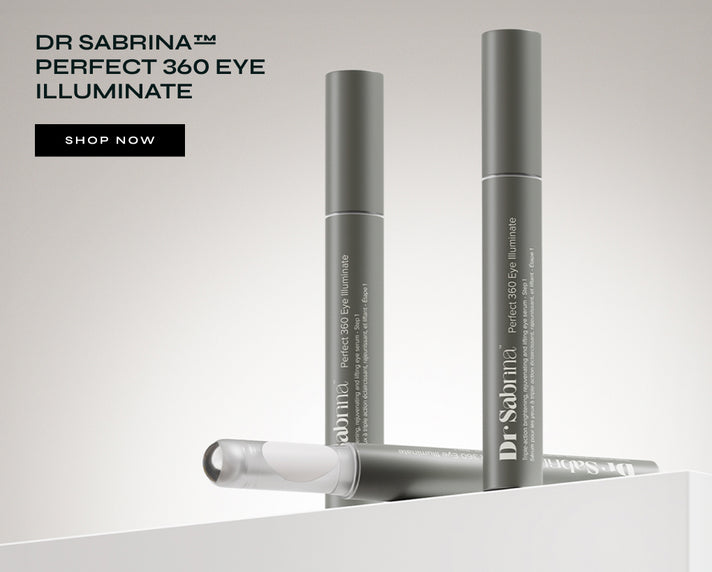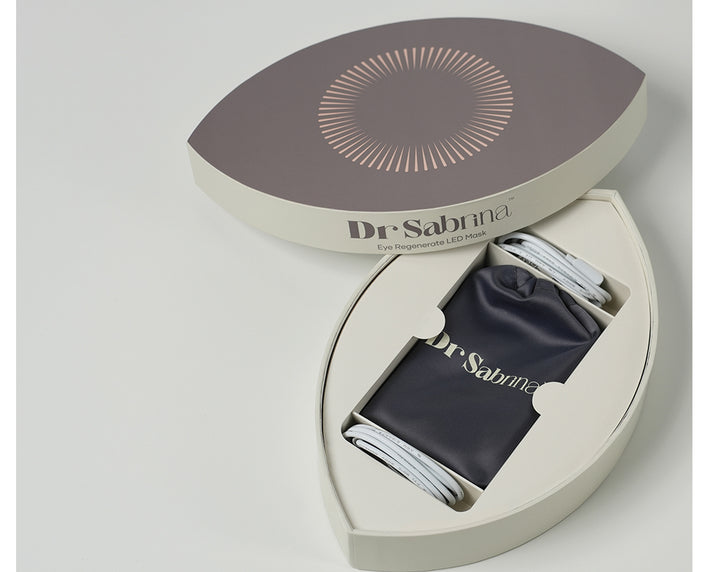Eye Serum
Best Foods for Eye Health and Eyesight

The eyes form one of the most sensitive organs of the body that in the long term depends not only on correct care but also on the foods we eat on a daily basis. The right diet can be used to help keep your eye-sight healthy, avoid aging-related eye-related diseases such as cataracts and macular degeneration and maintain good overall eye-function.
When it comes to protecting your eyesight, your diet can have a significant influence. Specific vitamins and minerals present in foods may help prevent two prevalent causes of vision issues: cataracts—cloudy regions in the eye's lens—and age-related macular degeneration (AMD)—a condition that causes vision loss in the macula, the part of the eye that allows us to see clearly in the centre.
Let’s look into the best foods to improve eyesight without glasses that you can add to your diet.
Best Foods for Eye Health
Incorporating the right foods into your diet can significantly improve your vision and protect your eyes from age-related conditions. Below are the top 10 scientifically proven foods that support eye health and may improve vision naturally, especially when combined with a healthy lifestyle
1. Leafy Green Vegetables
Leafy greens, such as spinach, kale, and collard greens, are high in lutein and zeaxanthin, two potent antioxidants that have been shown to lower the risk of chronic eye illnesses. These nutrients help filter harmful blue light and protect the retina from damage.
Additionally, leafy greens are rich in vitamin C, which further boosts eye health. You can add them to smoothies & salads or sauté them as a side dish.
2. Fatty Fish
Salmon, mackerel, tuna, and sardines provide excellent levels of omega-3 fatty acids. These healthy fats are essential for preserving the retina's structural integrity and avoiding dry eye disease.
Omega-3 fatty acids can also reduce the risk of macular degeneration. Try to consume fatty fish at least two times per week. You can grill, bake, or pan-sear them for a tasty meal.
3. Eggs
Egg yolks are rich in lutein, zeaxanthin, vitamin A, and zinc—all of which contribute to eye health. Vitamin A protects the cornea, while zinc enhances night vision and protects against age-related damage.
Enjoy eggs boiled, scrambled, or in omelettes. Pair them with leafy greens for an added nutritional boost.
4. Citrus Fruits
Citrus fruits, including lemons, oranges, and grapefruits, are rich in vitamin C. This vital antioxidant plays a significant role in promoting the health of blood vessels in the eyes. Vitamin C also helps in slowing the progression of age-related macular degeneration and cataracts.
Have a fresh orange as a snack, or add lemon juice to your water or meals for a tangy twist.
5. Nuts and Seeds
Almonds, chia seeds, flaxseeds, and walnuts are great sources of vitamin E and omega-3 fatty acids. Vitamin E acts as an antioxidant, protecting the eyes against damage from free radicals, while omega-3 fatty acids contribute to the health of the retina.
Snack on a handful of nuts or sprinkle seeds over your yoghurt or cereal.
6. Carrots
Carrots are famous for their eye health benefits, and for good reason. They are rich in beta-carotene, a form of vitamin A that aids in preserving good vision and preventing eye dryness. Beta-carotene is also essential for reducing the risk of night blindness.
You can enjoy carrots raw as a snack, toss them into salads, or incorporate them into soups and stews.
7. Sweet Potatoes
Similar to carrots, sweet potatoes are rich in beta-carotene and also provide vitamin E. Together, these nutrients contribute to better night vision and overall eye health.
Bake or roast sweet potatoes for a nutrient-packed side dish.
8. Berries
Blueberries, blackberries, and strawberries are rich in antioxidants like vitamin C and anthocyanins. These nutrients reduce inflammation and oxidative stress in the eyes, helping to prevent vision problems.
You can eat berries as a snack, mix them into smoothies, or incorporate them into oatmeal.
9. Whole Grains
Whole grains like quinoa, brown rice, and whole wheat contain vitamin E, zinc, and niacin, all of which play a role in maintaining good eye health. Additionally, whole grains have a lower glycaemic index, which helps decrease the risk of age-related macular degeneration.
Swap refined grains for whole grains in your meals. Opt for whole grain bread, pasta, or rice.
10. Bell Peppers
Bell peppers are an excellent source of vitamins A and C, along with carotenoids such as lutein and zeaxanthin. These nutrients work together to protect the eyes from oxidative damage and improve vision.
Add bell peppers to salads and stir fries, or simply eat them raw with a healthy dip.
Tips for Enhancing Eye Health
- Stay Hydrated: Maintaining adequate hydration is crucial for preventing dryness in the eyes.
- Limit Screen Time: Adhere to the 20-20-20 principle: every 20 minutes, focus on an object 20 feet away for 20 seconds.
- Use Sunglasses: Safeguard your eyes from detrimental UV rays by wearing sunglasses that offer 100% UV protection.
- Quit Smoking: Smoking elevates the likelihood of developing cataracts and macular degeneration.
- Consider Eye Nutrition Supplements: Evaluate the use of supplements to ensure you fulfil your daily nutritional needs for optimal eye health.
For those looking to improve the appearance of tired eyes and reduce puffiness, check out our Eye serum to complement your eye care routine.
A Quick Recap on the Best Foods for Eye Health
Caring for your eyes starts with what you put on your plate. By incorporating these nutrient-rich foods into your daily diet, you can enhance your vision, protect against eye diseases, and ensure long-term eye health. Whether you’re looking for vitamins for dry eyes or exploring foods to improve eyesight without glasses, a balanced diet is key.
For more tips, explore our blog on how to relieve tired eyes naturally to complete your eye care routine. Remember, a balanced diet paired with regular eye check-ups is the key to seeing the world clearly for years to come.
Frequently Asked Questions
What foods are good for your eyesight?
Eating foods that are high in vitamins A, C, and E, as well as omega-3 fatty acids, can help keep your eyes healthy. For vitamin A, try carrots, sweet potatoes, spinach, and other leafy greens. Citrus fruits, berries, and bell peppers are great sources of vitamin C.
What exercises are good for your eyes?
Here are some good eye exercises:
- Palming
- Blinking
- 20-20-20 Rule (look at something 20 feet away for 20 seconds every 20 minutes)
- Zooming
- Refocusing
- Pencil push-ups
- Roll your eyes (this can relieve eye strain)
Which vitamin is the best for eye health?
span>Vitamins A, C, and E are essential for healthy eyes. Vitamin A keeps the surface of your eye in good condition, while vitamin C protects your eyes from damage. Vitamin E helps shield your eyes from harm caused by UV light.
What dry fruit is best for your eyes?
Nuts and dried fruits like almonds, apricots, and cashews are great snacks for your eyes. They are rich in Vitamin E, which can help prevent issues like cataracts and degeneration of eye muscles.
When should you be concerned about your eyes?
If you experience eye injuries, sudden vision changes, or eye pain, these could signal serious problems. If you have any concerning symptoms, it's important to talk to an eye doctor for advice.
Can blurry vision get better?
Blurry vision caused by dry eyes, allergies, or staring at screens may improve with simple home remedies. However, issues like refractive errors or eye diseases usually require medical treatment.
Can eye drops help improve vision?
While eye drops won't fix nearsightedness immediately, some studies suggest they might help children with myopia in the long run. Low-dose atropine drops could slow down the worsening of myopia in kids.

















